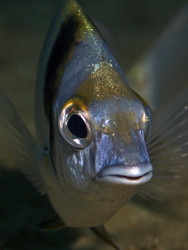Mediterranean marine biodiversity research boosted
The MARBIGEN(opens in new window) (Supporting research potential for marine biodiversity and genomics in the eastern Mediterranean) project was established to assist conservation of marine ecosystems. This was achieved by supporting the Institute of Marine Biology, Biotechnology and Aquaculture (IMBBC, formerly Institute of Marine Biology and Genetics, IMBG) of the Hellenic Centre for Marine Research (HCMR) in becoming a centre of excellence in biodiversity. One of the world's areas most vulnerable to climate change is the eastern Mediterranean Sea, which is also a biodiversity hotspot. The Institute is located in the heart of this region, making it an important centre for genomics and biodiversity. The aim of the MARBIGEN project was to enhance IMBBC in becoming a centre of excellence for biodiversity research. This included acquiring new equipment and upgrading existing one. It also helped to develop areas of research, such as bioinformatics and biotechnology by hiring new scientific personnel. Furthermore, the IMBBC benefited from the knowledge and experience of other European research institutions through staff exchanges. The project also planned and organised workshops, seminars and an international conference. MARBIGEN emphasised the use of next-generation sequencing and bioinformatics, and organised formal training courses for PhD students, academic stuff and researchers. Biodiversity research was enhanced through application of state-of-the-art high-throughput genomics technologies, supported by bioinformatics. Bioinformatics can be defined as the computational branch of molecular biology, combining computer science, statistics, mathematics and engineering. It was used to develop software tools for storing, organising and retrieving biological data. Precise automated 3D phenotyping was also introduced to IMBBC, while an in-house experimental facility, which allows environmental conditions to be manipulated and monitored, was also established. In addition, an innovative experimental site that will be used for conducting long-term research, focusing on the effect of human activities and climate change on coastal ecosystems, was established. MARBIGEN developed and disseminated knowledge and expertise to build potential for marine biodiversity research. It has enabled the IMBBC to become a respected centre for education and training due to its multifaceted analysis of biological data. By providing education and training to life science professionals, it will generate a pan-European expertise base in marine sciences for policymakers and industry. The MARBIGEN project made a significant contribution to the work of the IMBBC and as a result, the Institute's profile has been raised at the national, European and international levels. It has thus become a hub for developing and disseminating knowledge and expertise.







